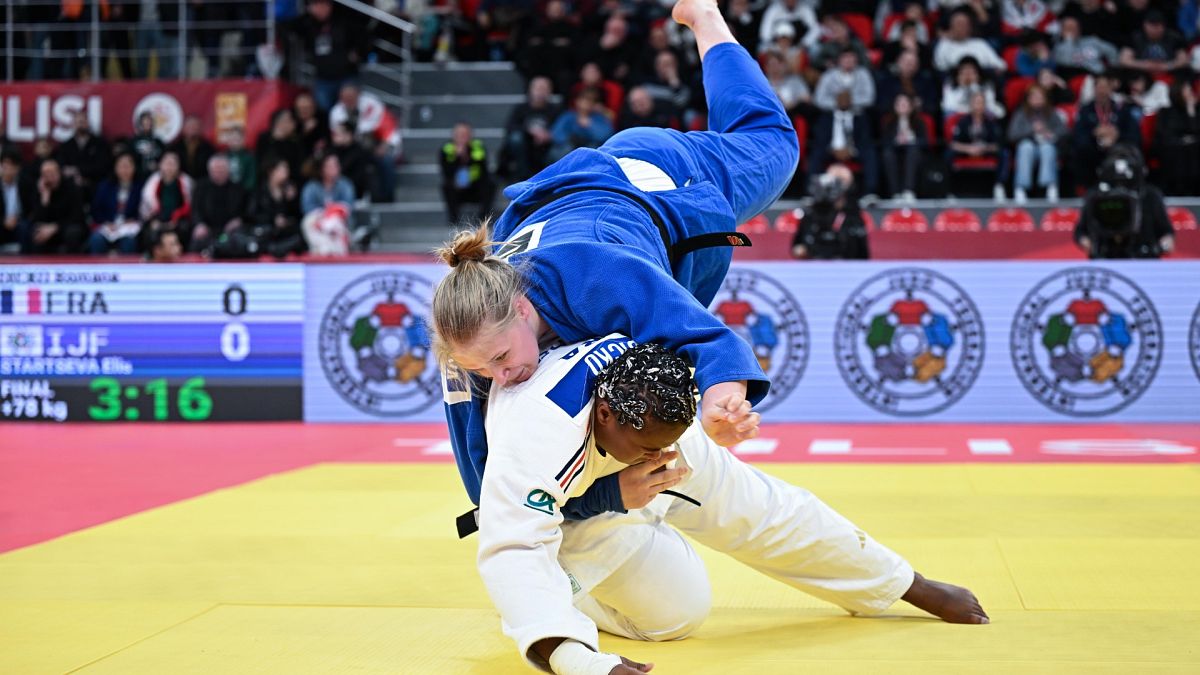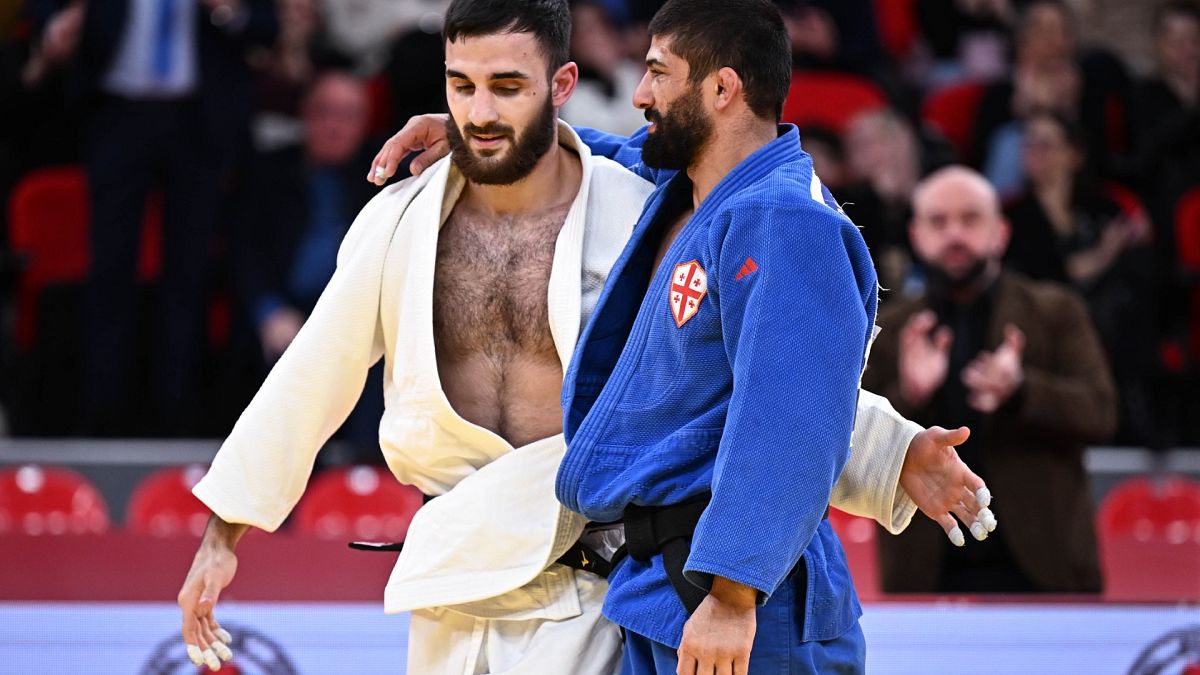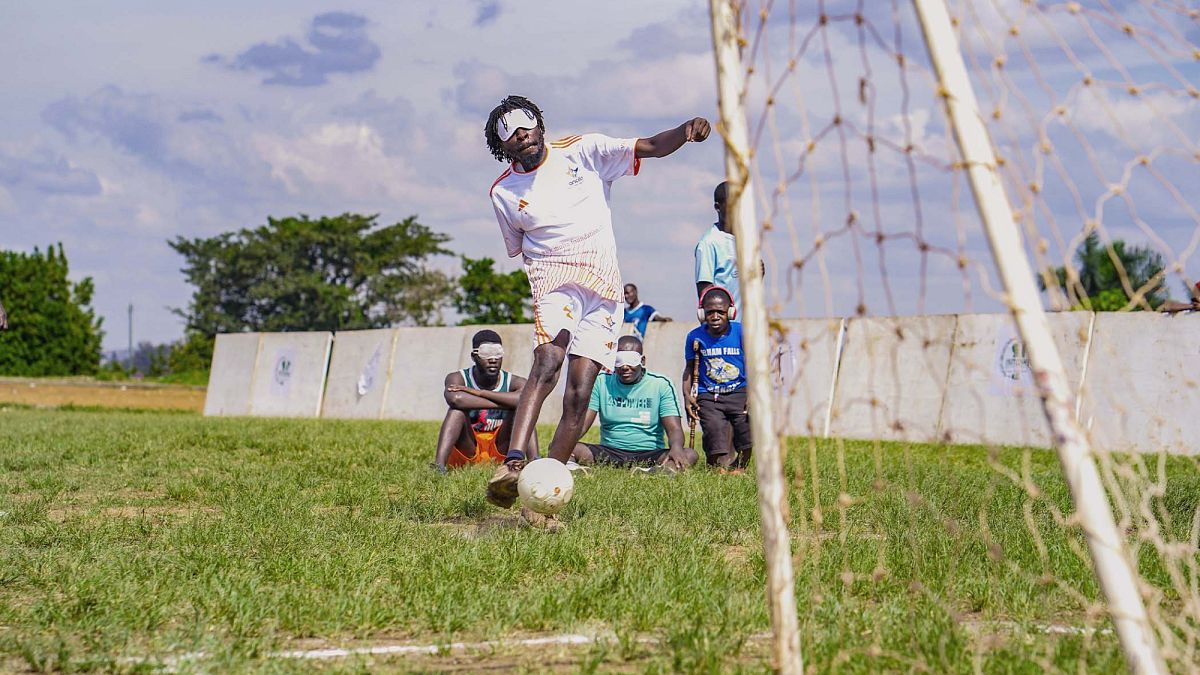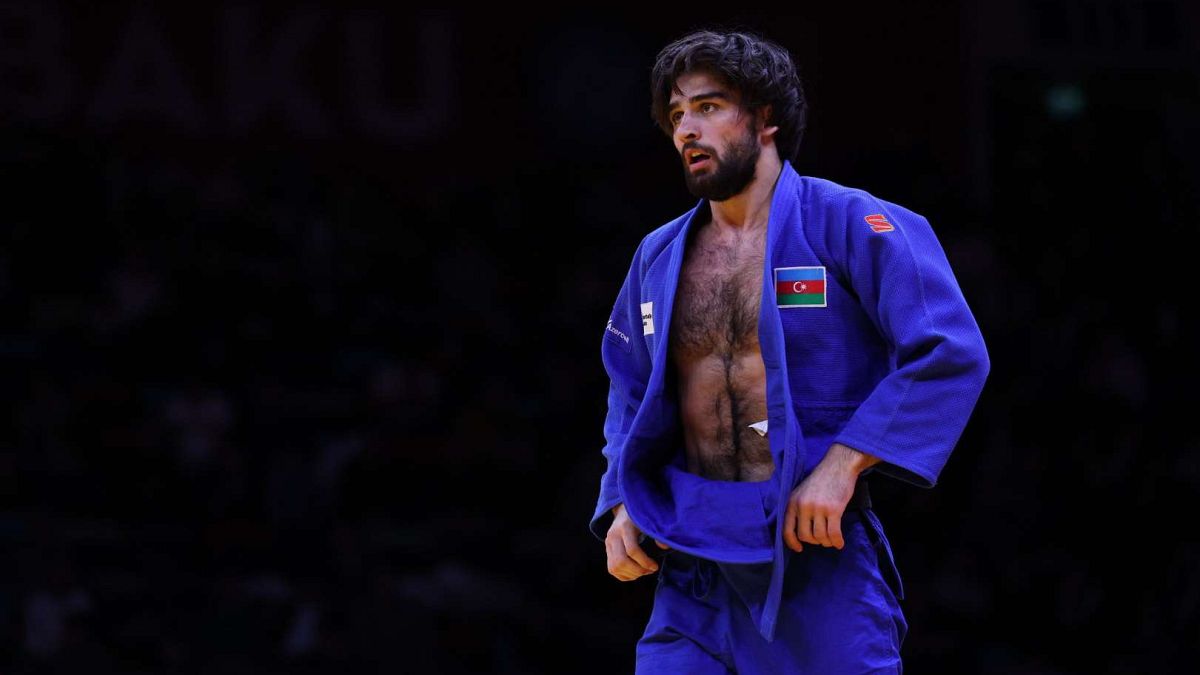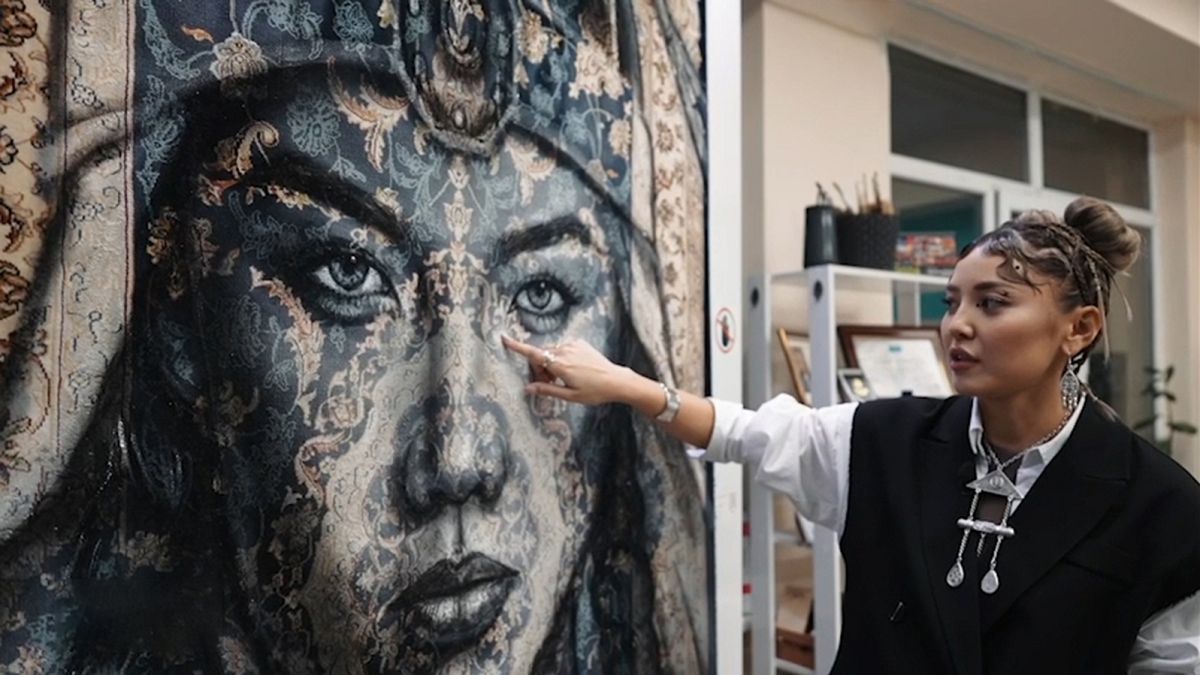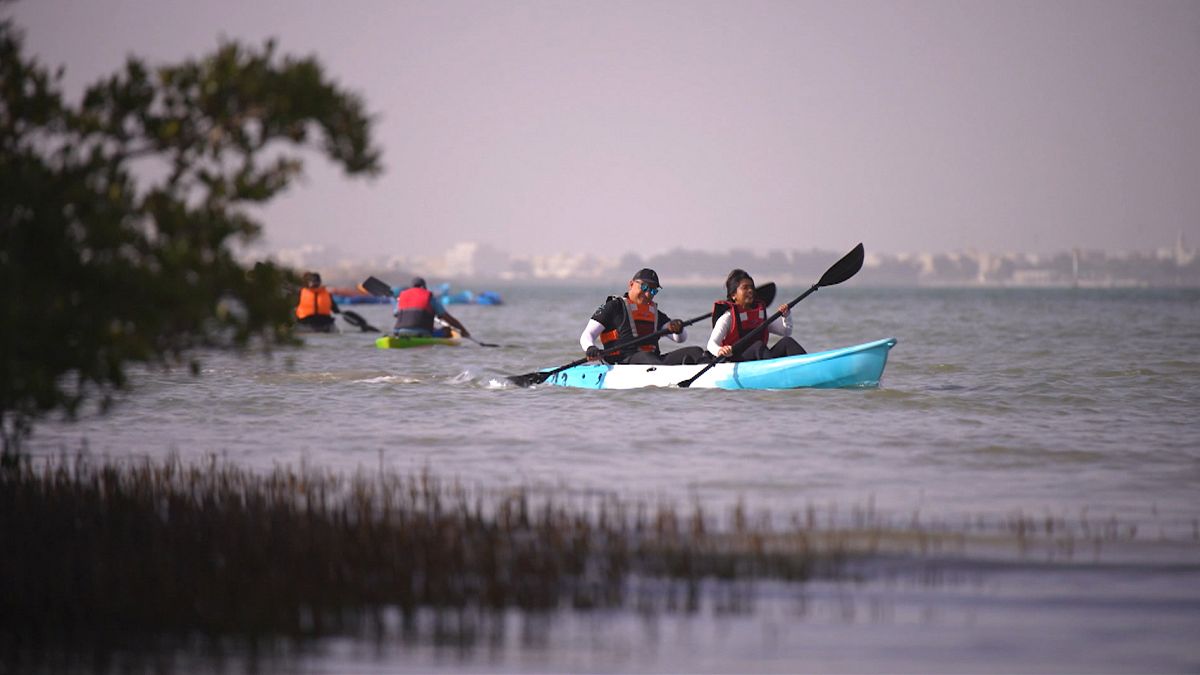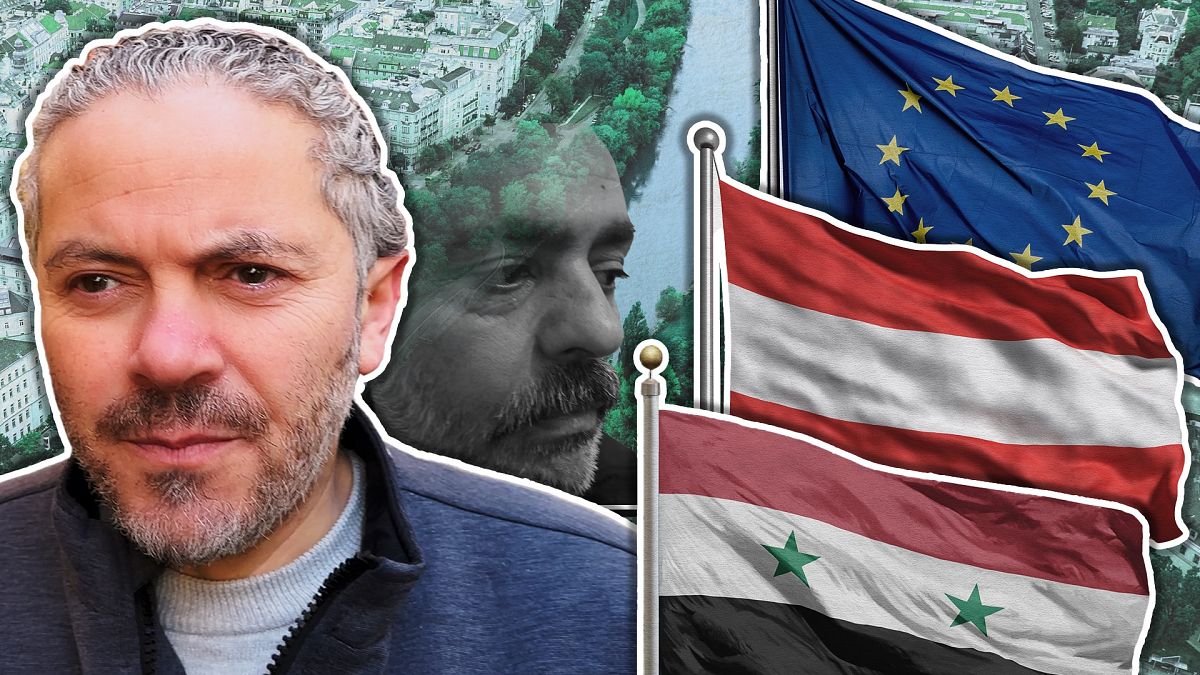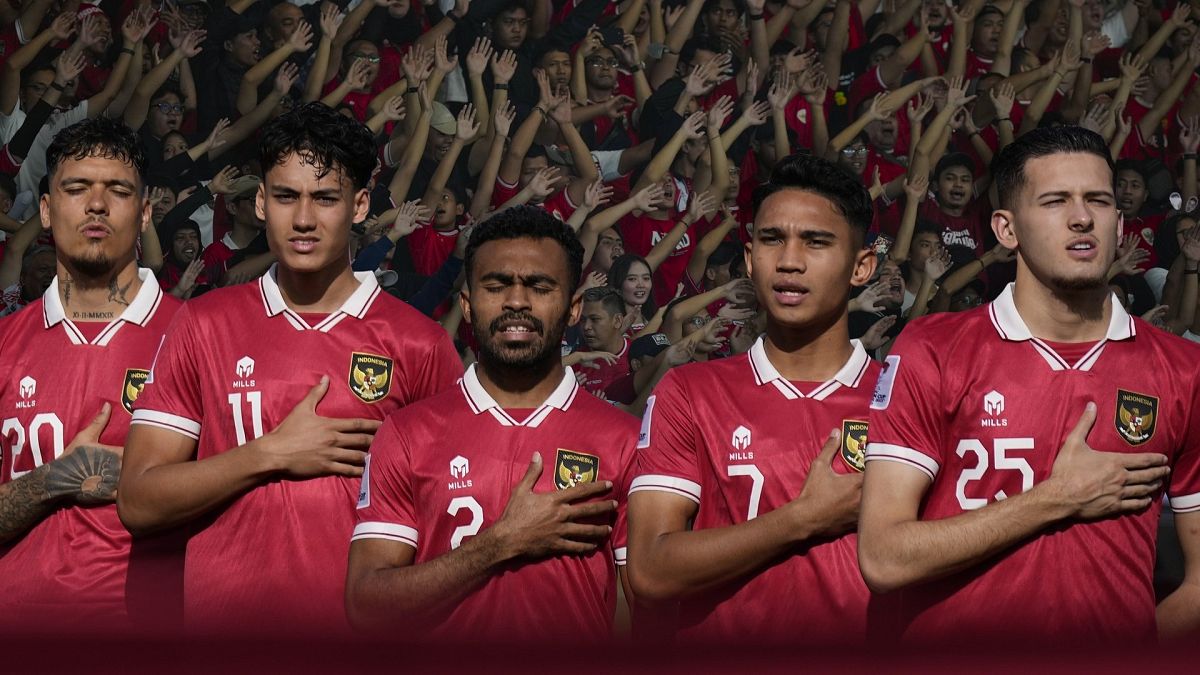Israel-Hamas war: the point of no return?
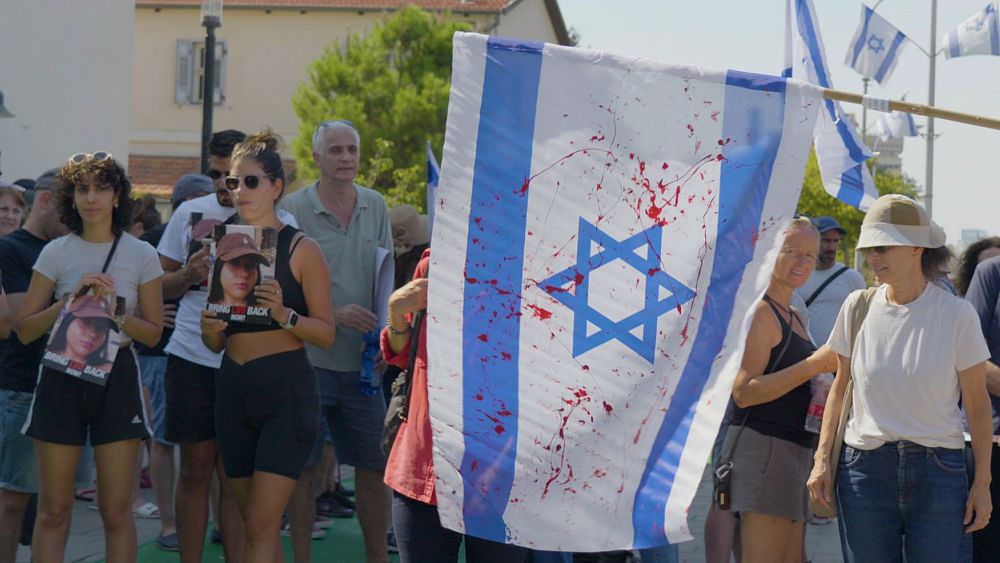
Our Senior International Reporter Valérie Gauriat travelled to Israel and the West Bank to hear from members of the Israeli and Palestinian communities which are more divided than ever by the unprecedented conflict.
On 7th October 2023, the world awoke to the news of a lighting terror attack by Hamas militants who stormed from the Gaza Strip into Southern Israel killing more than 1,400 people and taking at least 240 hostages.
In retaliation, Israel launched an unprecedented military offensive on the Gaza Strip, vowing to destroy Hamas.
In the first two weeks of Operation Iron Swords, thousands of Palestinian civilians were killed, and more than a million displaced. For many, the war has also sentenced to death any hope of future cohabitation.
Our Senior International Reporter Valérie Gauriat brings you first-hand accounts of both Israeli and Palestinian families and communities living through the conflict.
The horrifying aftermath of the Hamas attack
A few days after the Hamas terror attacks, Israeli troops were gearing up for the announced ground offensive on the Palestinian enclave. Tens of thousands of reservists were called to service.
The sadly notorious kibbutz Be’eri was one of the hardest hit by the Hamas terrorists. 10% of its 1100 inhabitants were killed.
The teams of the Israeli Zaka forensics organisation were still in shock at the atrocities they found, after the village was recaptured by the Israeli army.
“The first house that we went in, we saw a couple, father and mother, hands tied to the back, tortured, and missing body parts while they were alive,” revealed Yossi Landau, ZAKA’s Southern Israel Commander.
“And on the other side, two children, a six-year-old and a seven-year-old boy and girl, in the same position. Tortured.
“We go into the next house. A pregnant lady lies on the floor, face down. We turn her over. She’s butchered open. In her stomach, a baby. An infant. An unborn infant that is still connected with the cord. I could see the baby. It’s a mature baby. It’s just stabbed. And she was shot in the back.”
Many more accounts of alleged torture and abuse on civilians, including rapes and beheadings, would follow.
Families search desperately for missing loved-ones
More than one hundred Be’eri residents were taken hostage or reported missing. Yarden Roman Gat, a dual Israeli-German citizen, and her sister-in-law Carmel are among the civilians missing from Be’eri.
Their families and friends are working relentlessly to find them. Yarden was visiting her in-laws in Be’eri with her husband and their daughter when they were captured by the assailants.
They escaped the car taking them to Gaza and fled to the woods while being shot at by four Hamas gunmen. The young woman handed the child over to her husband, who managed to get away. But she did not run fast enough. Yarden and Carmel have not been heard of since. But Yarden’s mother-in-law was killed by the terrorists.
“How do you tell a three-year-old that her grandmother was murdered by the ‘bad people’ that got to her home? She saw them. She understands,” explained Liri Roman, Yarden’s brother.
The family has called Germany and the international community for help.
“I don’t even want to think about how they treat them, what they do with them. That’s going to be the new terror. That’s going to be everywhere in the world. Today it’s Israel. But tomorrow, who knows?” Liri added.
One week on: Tension and death toll mounts
A week after the launch of Israel’s offensive, the Hamas health ministry reported that more than 1500 people, nearly half of whom were children and women, had been killed, and thousands more injured in the Gaza Strip, under constant bombing.
The thunder of war echoed in the West Bank and occupied East Jerusalem. Security had been hyped up in the Old City of Jerusalem, where some 2500 police and military forces were deployed for the first Muslim Friday prayers since the 7th October. Activity was at a standstill, and security checks were constant.
“The situation for us in the last week, because of the war, has been very hard in the Old City,” said Ali Jaber, a resident of East Jerusalem. “They have orders, a green light to shoot and to beat us.”
Meanwhile, a mass exodus had started from northern Gaza, after Israel’s military gave more than one million people 24 hours to evacuate to the southern part of the Hamas-controlled territory. The United Nations warned the world that an unprecedented human catastrophe was unfolding.
Hamas rockets kept pounding southern and central Israel, also under fire from Lebanese Hezbollah in the north. More than 120,000 people were displaced. The country was under alert.
“They [Hamas] don’t want just the South, they want Tel Aviv, and Jaffa, and Haifa and everywhere,” said one Israeli woman.
“We say to the civilians, go! Save your life. Go from the Hamas,” an Israeli man told Euronews, adding that, “Europe, they don’t understand this! You’re next! They will not finish in Israel!”
Anger turns towards the Israeli government
For some in Israel, Prime Minister Benyamin Netanyahu’s government policies contributed to the current situation. On the first Shabbat, the Jewish day of rest, since the Hamas attacks, hundreds had come to protest against the government in front of the Israeli defence ministry in Tel Aviv.
They rallied with families of hostages, demanding their immediate release.
“This is my daughter, Liri Elbag. She was kidnapped in her pyjamas. Early morning, to Gaza. And I want her back now!” said Liri’s mother Shira Elbag.
“She’s 18 years old. She doesn’t want to fight! I believe also in Gaza they don’t want to fight. Nobody wants to fight. Everybody just wants to live!”
“To be against Hamas does not mean that we have to kill one child in Gaza,” stressed Ronit Chitayat Kashi, a human rights activist at the protest.
The West Bank takes up arms
Violence was soaring in the West Bank. Hundreds of Palestinians were arrested. According to the United Nations, more than 50 Palestinians were also killed in clashes with the Israeli army or with settlers, in the space of ten days. A figure that would more than triple in the following weeks.
The city of Beitar Illit, a few kilometres south of Jerusalem, is one of the biggest of the Gush Etzion bloc of Jewish settlements and home to some 70,000 people.
Fear of attacks from the nearby Palestinian villages ran high among the population, after a Hamas rocket fired from Gaza hit the town, on the 9th October.
Residents welcomed the move from the Israeli government to provide 10,000 free weapons to West Bank settlers and relax rules on gun licences. The municipality also organised self-defence training programmes.
Firearms sales have reached record highs since the 7th October Hamas attack. Scores of civilians were also coming to train at a shooting range at Israel’s largest self-defence training centre near Beitar Illit. Many had never handled a gun before.
“As a first responder, my number one thing that I want to do is save lives. And I don’t want to hurt people,” said Kalanit, an Emergency Medical Technician.
“But sometimes you don’t have a choice. It’s either kill or be killed. And it’s horrific. I hope to never, ever, need to use my gun!”
Divisions deepen in Israel’s mixed cities
In the mixed cities of Israel, communities were more divided than ever. Freedom of movement and expression was restricted for the two million Palestinians holding Israeli citizenship.
Like in one of the mixed cities close to Tel Aviv: Lod for Israelis, Lydd, for Palestinians. Those who call themselves the Palestinian citizens of Israel, and the Jewish people call the Israeli Arabs, represent 20% of the population of Israel.
Yet in the mixed cities, people feel that their fate is more than ever compromised.
Ghassan Monayer, a human rights activist and social worker, is one of the rare Palestinian citizens of Israel in Lydd to have agreed to talk to us
“People are afraid to say anything that might get them arrested. We, the Palestinian citizens of Israel, we are in a very delicate situation. Because we see and hear both sides. In Israel, we know, we acknowledge that innocents were killed and we are against it. But there are 2.2 million people in Gaza. They need hope! They need liberation! They cannot live in a cage.”
Talking to us is also a risk for Maha Nakib, a women’s rights activist we meet near a wall separating an Arab neighborhood from a Jewish one in Lod. Her husband lost 20 family members, killed in the bombings in Gaza.
“We are now in that circle of hate and war, we have to stop that!” she cries out.
We need a real solution for two people! I don’t care if it’s going to be a solution of two states or one state, equal for all people. But it has to be a political solution.”
A solution in which Chani Luz, a religious Jewish Orthodox activist no longer believes. Relations between communities in her neighbourhood were hard hit by the violence that erupted in Lod and other mixed cities of Israel in May 2021, she says. And any trust that was regained was crushed by the 7th October attacks.
“The pogrom that we had in the heart of the country brings back scenes and memories of the Holocaust. You cannot live with a society that coins death as there as their slogan. Death for the Jews, is not something that a Jew can live with.”, she stated.
“There’s no justification for the terror and horrific atrocities they did. And there’s no way that we can continue living with them as our neighbours. So please, Arab nations, take your Gaza brothers in! If you’re really scared that they’re going to be killed by the Jews and if you care for your Arab brothers, open the gates and take them in!”
At the time of our broadcast, Israel’s air and ground offensive on Gaza was in full blow.
The Gaza health ministry said the death toll was over 10,000, among which at least 4,000 children.
Demanding the unconditional release of all hostages, Israel rejected growing international calls for a humanitarian truce.
Meanwhile, Lebanon’s Hezbollah militia and Israel’s army continued to exchange fire along the countries’ shared border, leaving the world to dread a regional conflict.
Source: Euro News



